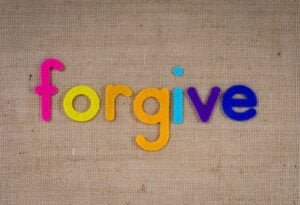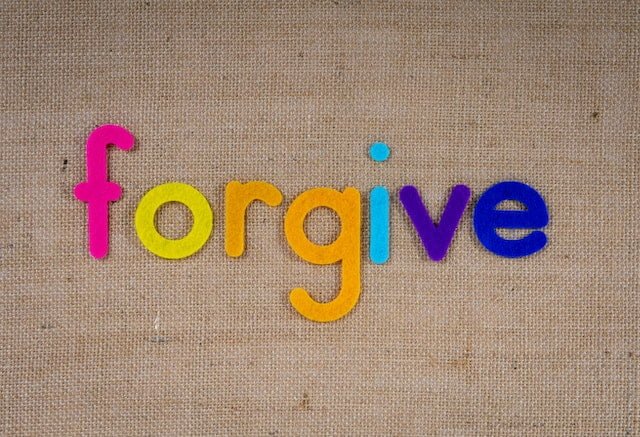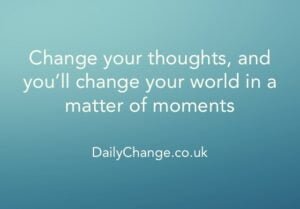It sounds paradoxical, but when we dig into the human psyche, we start to see the profound truth embedded within these words. This truth holds the power to reshape our lives and relationships, empowering us to break free from the chains of resentment and reclaim our inner peace.
The Mirror of Unforgiveness
When we harbor unforgiveness, we involuntarily dedicate a portion of our mental and emotional space to the person we refuse to forgive. This space becomes a breeding ground for resentment, anger, and bitterness – feelings that, over time, can seep into our own behavior and personality.
Interestingly, psychological studies affirm this. According to a study published in the Journal of Behavioral Medicine, harboring unforgiveness can lead to a host of physical and psychological issues, including stress, high blood pressure, anxiety, depression, and even a weakened immune system. It also increases the likelihood of displaying the negative behaviors we associate with the person we refuse to forgive.
Imprisoned by Resentment
Carrying the weight of unforgiveness is akin to dragging a heavy chain. We might think we’re punishing the person who wronged us, but in reality, we’re only burdening ourselves.
A poignant illustration of this comes from the work of Dr. Everett Worthington, a leading forgiveness researcher. He likens unforgiveness to drinking poison and waiting for the other person to die. It’s a destructive cycle, with ourselves becoming the primary casualty.
Breaking the Cycle
If the cycle of unforgiveness leads to such suffering, how can we break free? The answer lies in the act of forgiveness itself.
Contrary to popular belief, forgiveness is not about excusing or forgetting the wrong done to us. Rather, it’s about releasing the negative feelings associated with the person or situation, freeing up that emotional space within us. It is a conscious decision, a gift we give to ourselves, allowing us to regain control over our emotional state.
The Transformation of Forgiveness
When we truly forgive, we release the power that person or situation has over our emotions. We reclaim our inner peace, which often leads to improved mental and physical health, as supported by a multitude of studies.
One study published in the Journal of Health Psychology found that forgiveness is associated with lower levels of stress and mental health symptoms. Additionally, the study found a positive relationship between forgiveness and life satisfaction.
Embracing Forgiveness in Daily Life
Implementing forgiveness in our daily life can start with small steps:
- Recognise the power of forgiveness and make a conscious decision to forgive.
- Empathise (if possible) with the person who wronged you. (This does not mean to condone or accept it as right)
- Reframe the narrative from being a victim to being a survivor.
- Practice mindfulness to cultivate an attitude of forgiveness.
- Seek professional help, such as therapy or counseling, if needed.
- Create good supportive networks
Remember, forgiveness is a journey, not a destination. It may take time and patience, but the resulting freedom from resentment and negativity is worth the effort. After all, we owe it to ourselves to live a life unfettered by the chains of unforgiveness.
It appears that you didn’t ask a question or provide a prompt in your latest response.
When Forgiveness and Agreement Diverge
Contrary to popular belief, the act of forgiveness is not a sign of weakness, but a mark of inner strength and self-understanding. However, it’s crucial to comprehend that forgiving does not mean agreeing or condoning the actions or behavior that led to the hurt. Instead, it means releasing the emotional burden that accompanies resentment, anger, or desire for revenge. This nuanced distinction between forgiveness and agreement is often misunderstood, leading many of us down a path of emotional confusion and self-conflict.
At its core, forgiveness is about releasing yourself from the bonds of negative emotions that stem from past experiences. By choosing forgiveness, you choose freedom – freedom from anger, bitterness, and resentment that can consume your thoughts and emotions, often subconsciously. Yet, it’s entirely possible, and indeed necessary, to separate the act of forgiveness from the act that led to the need for forgiveness in the first place.
Forgiving someone doesn’t mean you approve of what they did. It doesn’t mean you think what they did was right or just. It doesn’t mean you’re willing to let them do it again. It simply means you’re ready to let go of the pain it’s causing you. In essence, it’s a gift you give to yourself.
Respecting Your Boundaries
Forgiveness does not necessitate forgetting. It doesn’t mean you need to erase the lessons you’ve learned from your experiences. It doesn’t mean that you need to open yourself up to being hurt in the same way again.
When you forgive, you can still remember the pain, but you no longer allow it to control you or define you. You can take steps to protect yourself in the future without holding onto the resentment. Establishing clear boundaries for the future can be an integral part of the forgiveness process, helping to reconcile the act of forgiving someone with the necessity of safeguarding against future harm.
Breaking My Addictions Summary
In the end, the journey of forgiveness is a deeply personal one, and there’s no right or wrong way to go about it. It’s a journey that requires courage, understanding, and self-compassion. Remember, forgiving is not forgetting, it’s not condoning, and it’s definitely not a sign of weakness. It’s a sign of profound inner strength and a step towards personal freedom. When we forgive, we liberate ourselves from the chains of bitterness and resentment, and open our hearts to healing, growth, and the possibility of genuine peace.













